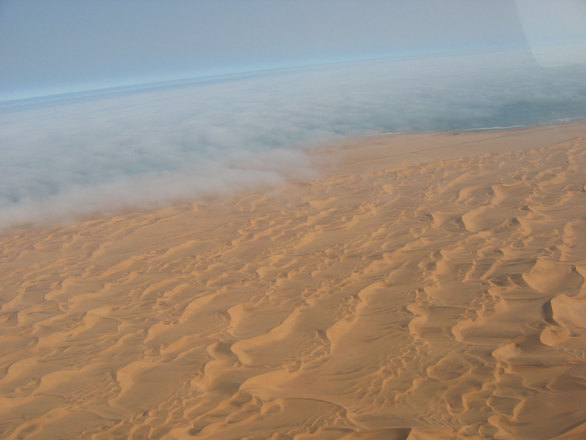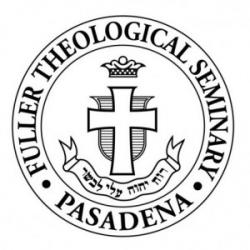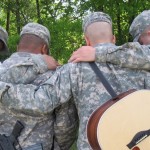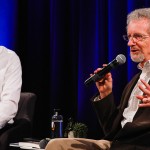This is the fifth installment of a series of posts by Dr. Yong on the theme of the “Holy Spirit and Mission in Canonical Perspective.” See all the posts here.
Much has been made by modern Pentecostal interpreters of the Spirit’s filling of the Seventy in Numbers 11 as an Old Testament prototype of the Day of Pentecost event in Acts 2. There are certainly many observable parallels – i.e., of Moses as Spirit-filled leader of the people of God being a type of Jesus the Spirit-anointed messiah; of the Seventy and the Twelve as representative leadership under the two (Mosaic and Pentecostal) covenants; of the prophesying of the Seventy and the glossolalia of the Twelve, among other aspects. Without denying the correspondences, our focus here will be on understanding the connections between the sendings of the Spirit of Yahweh not only on the Seventy but also “from the sea” (Num. 11:31). Any pneumatological reading of Numbers 11 will need to be expansive enough to account for both manifestations of the divine ruach.
The steep contrast between what the two blowings of the wind of Yahweh achieve have to be explicated in light of the wider context. The passage concerns, first and foremost, the dissatisfaction of the Israelites with their daily provision of manna: “If only we had meat to eat!” (Num. 11:4). Whereas on prior occasions Moses had defended the grumbling Israelites and even interceded for their very existence in the face of an angered Yahweh who was ready to destroy them and transfer his covenant to Moses and his descendants instead (e.g., Ex. 32:9-14), this time Moses begged for relief, even of the most ultimate kind: “If this is the way you [Yahweh] are going to treat me, put me to death at once—if I have found favour in your sight—and do not let me see my misery” (Num. 11:15).

The divine ruach appears in response to both complaints. To address Moses’ plight, Yahweh commissions seventy Israelite elders: “I will take some of the spirit that is on you and put it on them; and they shall bear the burden of the people along with you so that you will not bear it all by yourself” (11:17). On this occasion, “when the spirit rested upon them, they prophesied. But they did not do so again” (11:25). Interestingly, there is also special mention of Eldad and Medad – perhaps they were part of the seventy, perhaps not, even as it is unclear if the seventy were part of a larger number of elders (cp. Ex. 18:25-26, 24:1) – who received the ruach of Yahweh and who also prophesied, albeit outside the tent of meeting (Num. 11:26-27). Pneumatologically, we might say that here Yahweh’s response to Moses’ prayer is to empower others to bear the burden with him of leading Israel’s return to Canaan.
But Yahweh also sends his wind in response to the murmurings of the Israelites: “Then a wind went out from the Lord, and it brought quails from the sea and let them fall beside the camp, about a day’s journey on this side and a day’s journey on the other side, all around the camp, about two cubits deep on the ground” (11:31). Beyond the massive torrent of quail deposited, it is what happened next that is noteworthy: “while the meat was still between their teeth, before it was consumed, the anger of the Lord was kindled against the people, and the Lord struck the people with a very great plague. So that place was called Kibroth-hattaavah, because there they buried the people who had the craving” (11:33). In effect, the cravings of the people for meat were only partially satisfied; their very lives were cut short, not to mention that they did not even get to enjoy and complete their meal. Pneumatologically, the divine ruach at least precedes, if not also is a constitutive expression of Yahweh’s anger; if the “blast” of Yahweh’s nostrils before sent the waters to destroy the Egyptians (Ex. 15:8 – ch. 3 above), here the strong winds of God sent the quail which meat destroyed the Israelites.
To be sure, divine judgments in the Book of Numbers are not always pneumatologically mediated. There is plenty of “bad news,” we might say, related to Israelite disobedience, whether of the divine consumption by fire at Taberah (11:1-3), of an unspecified plague on the spies who discouraged Israelite annexation of Canaan (14:36-37), of a destructive earthquake that swallowed up Korah and his family and followers and the related fire that devoured those with him (16:31-35), of venomous snakes in the desert of Edom (21:6), and of another plague that took the lives of 24,000 plus in the plains of Moab (25:1-9), just to name the most obvious. What is unique about pneumatological judgment in the case of Numbers 11 is that wind of Yahweh also brings relief, or at least is intended to do so, whether the seventy do actually, in the long run, assist Moses in shouldering the burden of leading the people of Israel.
Also noteworthy, a point not mentioned above, is that after Yahweh tells Moses how his leadership challenges will be dealt with (through the dispensing of Moses’ spirit to the seventy), the problem of the people’s grievances is addressed through Yahweh’s instruction, through Moses: “say to the people: Consecrate yourselves for tomorrow, and you shall eat meat” (11:18). The call here is, clearly, also a pneumatological trope: for the people to “Sanctify yourselves….” There is no indication in this call for consecration and sanctification that judgment is impending, only the admonition that Yahweh’s answer to the people’s cries for meat will result in their loathing it (11:19-20). Yet it is also unmistakable that the path of sanctification involves that of purification, which in this case included the elimination of those whose attitudes and passions inhibited their experiencing the blessings of Yahweh.
These early references to the wind or breath of God in the Torah are indicative not only of the creative power of the divine spirit but also of its refining character, even to the point of death and destruction. The Spirit of creation works as the Spirit of redemption amidst a fallen creation and through fallen human creatures. The mission of the Spirit thus judges and purifies, in anticipation of the redemption to come. Even in Numbers, this is heralded in the last few chapters, with developments unfolded in chapters 26-36 as representative of the experiences of the generation that enter into the land of Canaan. We will pick up on this theme in our reflections on the Book of Deuteronomy. In the meanwhile, however, we must look at the ruach of Yahweh on the mountains and plains of Moab.
Amos Yong came to Fuller Seminary in July 2014 from Regent University School of Divinity, where he taught for nine years, serving most recently as J. Rodman Williams Professor of Theology and dean. Prior to that he was on the faculty at Bethel University in St. Paul, Bethany College of the Assemblies of God, and served as a pastor and worked in Social and Health Services in Vancouver, Washington. Yong’s scholarship has been foundational in Pentecostal theology, interacting with both traditional theological traditions and contemporary contextual theologies—dealing with such themes as the theologies of Christian-Buddhist dialogue, of disability, of hospitality, and of the mission of God. He has authored or edited over 30 volumes.
Follow Fuller Seminary on Twitter at @fullerseminary.











